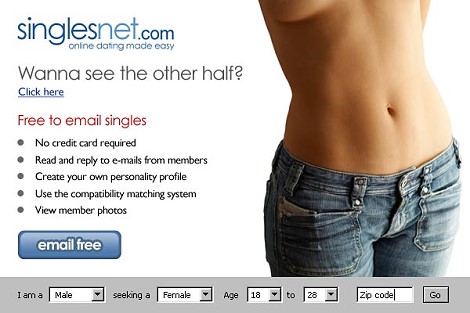Who We Are When
We Think No One's Looking
Christian Rudder
(Crown)

Women, on the other hand, find beauty in a man very near their own age group. If she is thirty-five, "the men who look best to her" will be thirty-four; if she is fifty, it's forty-six.
That's just one of the interesting facts that Rudder is able to pull from his company's computer. There are more, because the author runs a dating service, and through it, has discovered that
- The easiest way to count gay men is enumerating the relative number of Google users who seek porn with "depictions of gay men." The ratio to all porn searches runs runs 1 : 20 --- that is, 5%. (Compare this figure to self-reporting. It has been found that only 1.3 % of men declare themselves gay in grim places like Mississippi, whereas, 5% declare their inclinations in more tolerant states like Rhode Island or Hawaii.)
- You're worried about cookies and hackers? Rudder says that the true villains in personal information snitching are "corporate data marketeers [who] reach into bank and credit card records, retail histories, and government filings like tax records, know stuff about human behavior that no academic researcher, fishing for patterns on some website, ever could." He footnotes a company called Acxiom which offers to give "our clients the power to successfully manage audiences, personalize customer experiences and create profitable customer relationships."
- Two unusual hashtags have turned up on Tumblr and Pinterest: #proana and #thighgap. Both are now banned. The first was pro anorexia ("in favor of starvation as a weight-loss technique.") The second was "having thighs so thin that they do not touch when you stand with your feet and knees together." Searching for these online will get you images of women "deathly thin . . . a trait fetishized by teenage girls."
- If you want to find someone to love you are better off with a boilerplate message sent to dozens of strangers, rather than creating a new one for each possible partner.
 The key to grokking Rudder's book is a relatively ancient technique known as "unperceived data collection." Every time you use Facebook, Google, Reddit, Tumblr, Twitter, Twinkle, Gorkle and Gaggle you are shedding acres of stuff --- information, really --- like the fleas and ticks and various ailments being lavished on your carpet by your cute new puppy.
The key to grokking Rudder's book is a relatively ancient technique known as "unperceived data collection." Every time you use Facebook, Google, Reddit, Tumblr, Twitter, Twinkle, Gorkle and Gaggle you are shedding acres of stuff --- information, really --- like the fleas and ticks and various ailments being lavished on your carpet by your cute new puppy.
You are leaving behind sheaves of personal information: loves, hates, passions, fears, hopes, orientation and prejudices. It's not only what you say, it is how you say it, how you work your words, which terms you repeat, which you stay away from: your silences.
You may not even know that you are baring your soul but they do.
They --- the guys who run these sites, Facebook, Google, etc. are pulling all sorts of information from your emails, your preferred links, the videos you watch, the items you search, and of course your photograph and likes and dislikes posted in your dating site.
I scarcely thought that I would be looking over, with such interest, the opinions of a man who helped start a dating service called "OkCupid," letting me know that the personal information --- self-revelations, really --- that we believe to be protected and off limits are, instead, available to those who may decide they need it. (Although Rudder does try to convince me that it is data in general, not explicitly personal data, that are the keys to these studies.)
Nor did I think that such an entrepreneur (OkCupid, indeed!) could describe so cogently and so well some of the basic laws of mathematics, probabillity, and chance . . . like Leonard Euler's "Seven Bridges of Kõnigsberg," or Stanley Milgrim's "Six Degrees of Separation:" this last showing, for example, that of all the 721,000,000 accounts on Facebook, over 99% of the people involved are connected to each other "by six steps or fewer." That is, you and I are only six people away from knowing everyone in the world.
Americans learned this in the aftermath of President Kennedy's assassination: the FBI turned up a family who had known friends of JFK and, as well, they were people with friends who knew Lee Harvey Oswald.
Dataclysm is chock-full of stuff like this, and for me, a militant non-user of Facebook, Twitter and Reddit, these may be facts that can make us long to become militant Luddites.  For instance, we know that that Justine Sacco never dreamed that she would be marked by what Rudder calls the "Internet-rage machine" when getting on the airplane for Johannesburg last year. She tweeted friends, "Going to Africa. Hope I don't get AIDS." We now know that by the end of that week, over 60,000,000 people had checked into #HasJustineLandedYet. And that she lost her job as a result. Rudder didn't like it, saw it as a form of public stoning, and opined, "If anyone can become an overnight celebrity, anyone can become an overnight leper."
For instance, we know that that Justine Sacco never dreamed that she would be marked by what Rudder calls the "Internet-rage machine" when getting on the airplane for Johannesburg last year. She tweeted friends, "Going to Africa. Hope I don't get AIDS." We now know that by the end of that week, over 60,000,000 people had checked into #HasJustineLandedYet. And that she lost her job as a result. Rudder didn't like it, saw it as a form of public stoning, and opined, "If anyone can become an overnight celebrity, anyone can become an overnight leper."
- Social media empowers you to the extent that it makes you worth tearing down. It gives everyone else the tools to do it . . . So much of what makes the Internet useful for communication --- asynchrony, anonymity, escapism, a lack of central authority --- also makes it frightening.
Another scary fact has to do with the myth of "racial neutrality." The author claims that it is delusional. When OkCupid crunched the hidden feelings of of whites, blacks, Asians and Latinos, all of the men --- even black men --- found black women to be the least attractive of women. When reporting this, Rudder is drawing from his own company's computers, and he emphasizes that information flowing into dating services like his is particularly revealing.
Preferences that members demonstrate in their profiles are considered to be totally confidential --- they are, he reassures us --- but when it is filtered to reveal trends, it tells us more than we could want to know about what people desire, need, like (or loathe).
Thirty-five years ago a friend of mine declared that one of the leading woes of the coming half-century would be loneliness, an existential loneliness that would beat any that we had ever envisaged when we were getting into the world. He also predicted that those who figured out a way to free us from the torment of inherent aloneness would do very well for themselves.
He was right. Facebook is rapidly approaching signing up almost a billion users worldwide. Being alone hasn't been cancelled, but there are now alternatives that weren't even dreamed of back fifty years ago.
 And, if someone had to pick up the ball, I surmise that it is better that it be someone like Christian Rudder. I suspect that the founders of PayPal or Facebook or Reddit would not be making conscientious declarations like this, to be found midway through Dataclysm: "In my opinion, Muhammad Ali is one of the bravest Americans."
And, if someone had to pick up the ball, I surmise that it is better that it be someone like Christian Rudder. I suspect that the founders of PayPal or Facebook or Reddit would not be making conscientious declarations like this, to be found midway through Dataclysm: "In my opinion, Muhammad Ali is one of the bravest Americans."
- In 1967, as heavyweight champion, he refused to serve in Vietnam and was not only stripped of his title but banned from the sport for three and a half years. He lost the prime of his career, and received a five-year prison sentence (that took the Supreme Court to overturn), because of what he believed in.
"It's a stand unimaginable from today's political leaders. From Kanye to Glenn Beck to Rachel Maddow to Sarah Palin, you get plenty of anger, but little sacrifice."